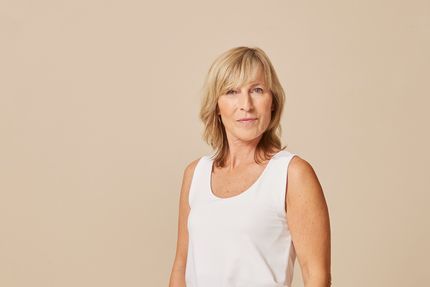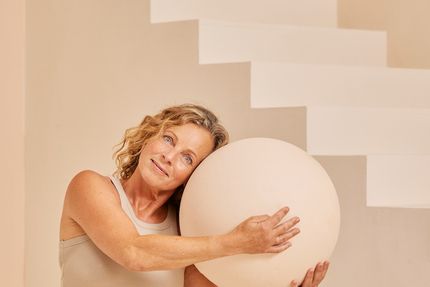

Wies: “Do you suffer from vaginal dryness? Talk about it!”
Pull up a chair, there's something really important we need to talk about. For many women, including myself, it is one of the most uncomfortable symptoms of menopause. Vaginal dryness. It makes intercourse painful and uncomfortable, which is something I also struggle with. Did you know that one in three women suffer from vaginal dryness in the years leading up to and after menopause?
What’s more, research shows that most women do not report vaginal dryness to their doctors and do not dare to talk about it. And that’s a real shame, because vaginal dryness does not have to diminish the quality of your life. If you want help, there are solutions available.
What is vaginal dryness?
Here’s a quick biology lesson to refresh your knowledge. What is vaginal dryness? If you suffer from vaginal dryness you may experience pain in the vulva (the area around the outside of the vagina which includes the labia minora and labia majora and clitoris) or pain and dryness in the vagina (the canal that joins the uterus to the vulva).
Vaginal dryness can cause pain or burning during sex, but it can also make cycling or wearing tight clothes very uncomfortable. These symptoms can be caused by vaginal atrophy: thinning, drying and inflammation of the vaginal walls.
The first thing you want to do is identify the cause of the problem. You may be referred to a gynaecologist by your GP if your problem requires specialist knowledge.
Vaginal atrophy due to low oestrogen
There are certain conditions associated with vaginal dryness. Vaginal atrophy is the most common of these conditions, so I will focus on it here. Vaginal atrophy occurs when the body produces less oestrogen, causing the vaginal tissue and vaginal epithelium (the inner lining of the vagina) to become thinner, drier and less elastic.
Vaginal atrophy can make sexual intercourse painful and cause symptoms such as vaginal dryness, soreness, burning and redness. It can also make the vagina more susceptible to infections.
Difference between vaginal dryness and vaginal atrophy
Many women who feel pain or discomfort during sex due to vaginal dryness believe they suffer from vaginal atrophy. But there’s a but. Almost 80 percent of women base this on the fact that they cannot get wet during sex. This is not the same as vaginal atrophy.
Yes, around menopause the vagina gets drier and less stretchy. However, during arousal, the vagina can still become lubricated as it normally would be during sex prior to menopause. The difference is that it may take a little longer for this to happen. Arousal is the magic component here: we often don’t give ourselves enough time to become aroused.
Sexual intercourse does not have to hurt
Vaginal atrophy has nothing to do with sex or sexual arousal. It is a condition in which the vagina wall shrinks and its lining becomes pale, smooth and dry. This can lead to tears, especially when subjected to friction (during sex or other activities). Of course, painful sex is not conducive to desire. Fortunately, there are treatments for the symptoms of vaginal atrophy, such as vaginal cream.
Vaginal cream is a medication that works by making the vaginal wall thicker and more elastic, reducing discomfort during sex. Treatment with vaginal cream or vaginal suppositories is most effective. Estriol is the weakest oestrogen and has the ability to stimulate blood flow.

Women with vaginal atrophy do not have to suffer needlessly during sexual intercourse. They are perfectly capable of getting wet as long as they are sufficiently aroused.

Lessons from gynaecologists
These lessons are not my own, but were shared with me by gynaecologists that I interviewed. I found them to be helpful as well. There are some vaginal creams, tablets and suppositories that are very effective. Synapause-E3 vaginal cream and Vagifem vaginal tablets (both with oestradiol) are known to significantly improve the symptoms of vaginal atrophy. It may take several weeks for the benefits of these medicines to appear. Hyalofemme Premeno Duo is an oestrogen-free option.
Perhaps you've lost interest in sex altogether. That’s fine too. But if you want to talk about your vaginal health, know that there is help available. You have options, whether it’s your doctor or a sex therapist, trying out hormonal therapies or experimenting with sex toys. I can speak from experience when I say that having a fun, fulfilling and healthy sex life can make life much more enjoyable.
Who is Wies?
Wies Verbeek (58) is a healthy ageing journalist, founder of website BLOW.nl, and author of ’n Beetje Leuk Ouder Worden, 101 verrassende en bewezen tips (Ageing Happily, 101 surprising tips that work). And... she's going through menopause like the rest of us.
Also interesting for you


FAQ










